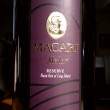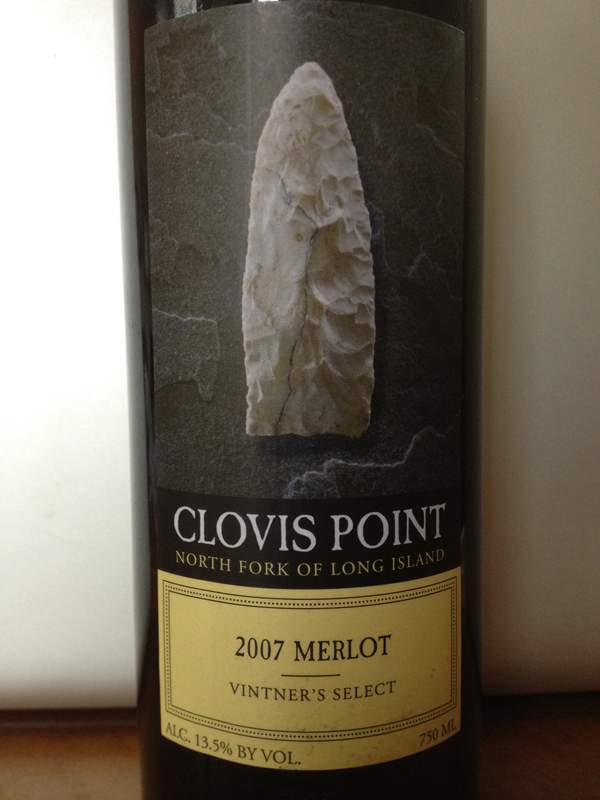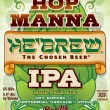Is the Town of Southold Supporting Wineries Like it Should?
I heard through the grapevine this weekend (yes, pun intended) that the Town of Southold is trying to change the way that it taxes orchards, farms and wineries by charging them a separate commercial tax as "processors."
So, if an apple orchard just picks and sells apples, it’s not going to be taxed more. But, if they make apple cider for sale at their farm stand, that means a higher tax. Same is true for a corn farmer…if they roast corn to sell at their farm stand, they have to pay more. Seems a little ludicrous to me.
And, apparently they want to treat wineries/vineyards differently still…because they don’t see them as agriculture. Grape growing isn’t agriculture?
Seems to me that local government should be supporting and protecting the East End farm industry, regardless of what is being grown there. But maybe I’m not getting the full story.
I’m trying to dig up more information on this topic, so if you’ve heard anything, let me know.
















First I will say that I have no knowledge of this proposal but am not surprised that it has come up. This is an issue that is very complex. No one argues that grape growing or corn growing are not agriculture. But is roasting an ear of corn and serving it with salt and butter really a farm stand or has that moved over into a food service establishment? Likewise the processing of grapes into wine is protected by the NY State Dept. of Ag & Markets, but is an elaborate tasting room that sells multiple items produced elsewhere still an agricultural enterprise or has that crossed the line into a commercial operation. Southold Town is very supportive of agricultural business, providing tax exemptions for land that is actively farmed. But is it fair to other business owners who are taxed at commercial rates when farmstands and wineries compete with them selling similar goods? Southampton Town has spent years studying this issue (particularly in regards to farmstands and what they sell) before recently enacting new regulations; I am sure that Southold will examine what was done there. My career depends on vineyards and wineries being profitable, but as a Southold homeowner my sense of fairness dictates that the tax burden be distributed equitably.
Thanks for chiming in. I had a feeling I was only getting one side of things. Thanks for bringing some balance.
But, it is also my understanding that Southold isn’t offering any benefit to the new groups they want to tax, which makes it sound a bit like a fund-raising effort.
I’m sorry, the Town isn’t providing police or fire protection to these businesses? The transfer facility isn’t accepting waste from them? Children of employees who live in Southold aren’t being schooled?
Of course it is a fund-raising effort, the Town (and school district, and County, and State) are all looking for new sources of funding as costs for everything go up. Again, it is an issue of fairness; a field of corn or grapes doesn’t require the same services from the Town that a commercial establishment does. Does a farmstand that is operating as store/snackbar (and not just a shed to buy produce at) or a winery that has an extensive gift shop (and not just a place to taste and buy wine)deserve to be exempt from taxes that any other store owner would have to pay?
Ben…I just got this email from someone with more intimate knowledge than myself:
“…for every dollar of taxes the farming community pays in Suffolk County they receive 30 cents in services. For every dollar of taxes that a homeowner pays they receive $1.27 in services.”
Does that seem fair? I’m not sure that it does.
And OF COURSE it has fund-raising aspects, but if the above numbers are correct, I think that’s too blatant a fund raiser.
Ah, a public policy debate!
The argument that agricultural establishments that sell processed products benefit from local services and compete with local restaurants and cafes and should therefore pay more taxes sounds completely valid. However, does a reliance on equal tax distribution reflect the reality of how stable the agricultural market is?
In any agricultural area that abuts housing and commercial zones, there is always a looming temptation to sell land to make way for developers. The building market is extremely, extremely strong-perhaps the strongest of any local pressures. If the citizens of a particular locale view their farmland and agricultural establishments as unique assets that musn’t be destroyed, then there must be the acknowledgement that these businesses are in many ways different from the shops, stores, and restaurants downtown. Unlike traditional establishments, these agricultural businesses preserve open green space and produce goods and services that are unqiue and irreplaceable.
Does this mean that agricultural establishments should not pay more taxes? Of course not-each situation is different. One should be cautious, however, of jumping down a farm’s throat if it processes a few items for local consumption. Such revenue might keep the agricultural establishment afloat in a market that is much more interested in development and building than in preserving its agricultural heritage. When it comes to dollars and cents, who really “needs” a farm on Long Island? Yet, I guarantee that supporters of local farms understand the immense aesthetic value that these farms create.
So, it’s not cut-and-dry. If taxes are levied based purely on the production of consumable widgets, the farms might lose out. I have no idea if that is the reality in this case, but I figured I’d add my two cents.
Excellent points Jason and certainly the citizens of the Town, County, and State have chosen again and again to support ag enterprises through tax exemptions for farmers and additonal taxes on the general populace to fight the development pressure that threatens farming on LI.
Lenn, do you have any statistics that show the ratio of taxes paid to services received for businesses other than farming? The numbers you quote illustrate my point very nicely; a field of corn or grapes doesn’t require services and so is taxed at a very low rate, a commercial establishment requires more services and so is taxed at a higher rate. I’d bet that other business groups can show that they pay more than they receive directly as well.
Ben,
I don’t have those numbers, but I do have a few calls and emails in trying to get some.
If you know of anyone who has that information…please let me know and I’ll get in touch with them.
I usually stay out of public policy debates (it’s not my realm of knowledge) but I thought this would be an interesting topic to bring up…clearly it is!
Lenn, as you can see, I’ve never let lack of knowledge interfere with having a strong opinion! haha
I don’t have those facts either and I’m quite curious about them. I do know that the regulation (and taxation) of farms (including vineyards/wineries)in Southold is a very hot topic in local politics, further stirred up by the many new residents who have no clue as to what it means to live in an agricultural area.
You mean the Hampton-fication of the North Fork?
I don’t have all the facts either, but I heard that there is a hearing at Southold Town Hall today at 3…
Of course, I can’t make it out there but maybe I’ll hear something.
New York is such a tax-happy state that I’m shocked that anyone starts a small, family-owned operation or bothers to continue running one. Every little measure of success is met with public officials holding out their hands for more money to waste on overly abundant layers of government. At the end of the day they kill the small and medium-sized entrepreneuers and make it so that large developers control the market. This is why a good chunk of Long Island, and many other areas in the state, have abandoned their uniqueness and natural wonders and have become sprawling masses of strip mall crap. Thank goodness most of Upstate New York has too little population to make a huge difference, although we do have a phenomenon of sprawl without growth.
Simply put, if the winery business is not profitable enough, people will stay in their run-of-the-mill careers and not give it a shot. A love of wine only goes so far when individuals are also motivated by the desire to feel the fruits of the labor.